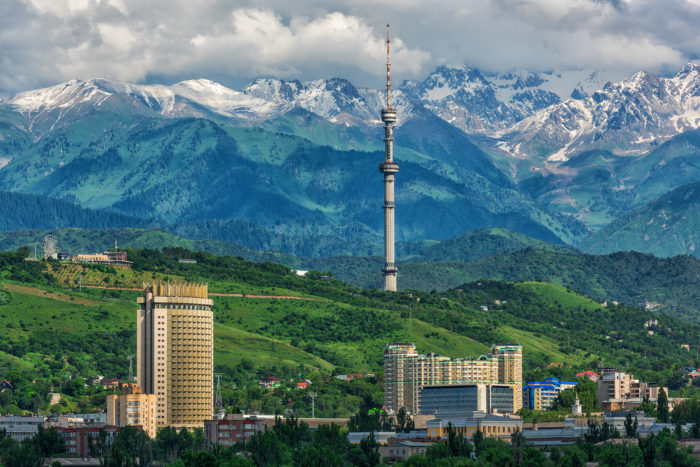Since independence, Kazakhstan, like other post-Soviet countries, has become a recipient of Official Development Assistance (ODA). In 1999, Kazakhstan’s First President Nursultan Nazarbayev announced that the country intended to reduce its reliance on financial assistance through the Development Assistance and reduce its outstanding loans from international institutions.

Almaty. Photo credit: Maxim Zolotukhin.
Since the early 2000s, Kazakhstan has consistently strengthened its position as an international donor. The country provided humanitarian assistance to partner countries and particular attention was paid to the development and support of the countries of Central Asia and Afghanistan.
According to the Kazakh Ministry of Foreign Affairs, Kazakhstan allocated $542 million to foreign countries in need of development assistance from 2000 to 2020.
Kazakhstan’s ODA system and KazAID
Despite the fact that Kazakhstan has the long-term status of an international donor, it was only in 2014 that the Kazakh concept in the field of ODA was approved at the legislative level. The adopted law prescribed the creation of a separate international agency for the coordination of development assistance.
Kazakhstan set the goal of joining the OECD and entering the top 30 list of the most developed countries in the world. It should be emphasised that 90 percent of the countries in this rating provide Official Development Assistance and contribute to the achievement of the UN SDGs (Sustainable Development Goals).
The creation of the agency with the support of the OECD would help build the ODA system in accordance with the country’s foreign policy interests, based on the example of other OECD member countries, and would also allow for the adoption of best practices from the largest donors in the world.
The creation of the Kazakhstan Agency for International Development KazAID, provided for in the ODA Law, in December 2020 became the foundation for ensuring the transparency and openness of the country’s aid and a guarantee that the country intends to continue being responsible for economic development and security in its region in the future.
In addition, at the international level, the creation of this organisation helps strengthen partnerships with major international donor countries and development institutions, and contributes to the formation of the KazAID international brand.
The decision to make the ODA systematic during this particular period was significant for the international reputation of Kazakhstan. Kazakhstan supports the world community in achieving the SDGs and is approaching the date of its official accession to the OECD.
Due to the development of the ODA sphere and the creation of the KazAID agency, the status of Kazakhstan as the main regional donor and guarantor of stability in Central Asia will be raised to a new international level.
The decision of the First President to reduce the volume of received financial assistance in the late 1990s and the dynamic development of Kazakhstan led to the fact that by the 30th anniversary of its independence the country was recognised not only as a recipient, but also as a leading donor of international assistance in the Central Asian region.
Dinara Abuova, an expert at the Institute of World Economics and Politics (IWEP) under the Nursultan Nazarbayev Foundation.
